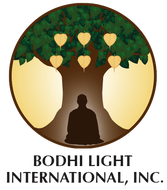|
Long ago in India, a king had four sons. One day they sent for the charioteer and said to him, “We want to see a Judas tree. Show us one!” "Very well!” The charioteer replied. But he took his time to show them. He took the eldest prince to the forest in the chariot, and showed him the tree at the time when the buds were just sprouting from the stem. To the second, he showed it when the leaves were green. The third prince was shown the tree when it was blossoming. And to the fourth prince, the servant showed the tree when it was bearing fruit.
Afterwards the four brothers happened to be sitting together and someone asked, “What sort of a tree is the Judas tree?” The first brother answered, “Like a burnt stump!” And the second cried, “Like a banyan tree!” And the third, “Like a piece of meat!” And the fourth said, “Like the acacia!” Naturally, the princes criticized each other insisting that they alone were right. Finally, they all went to see their father: “Your Highness,” they asked, “what sort of a tree is the Judas tree?” “What do you have to say to that?” The King asked. They each told him their individual answers. Said the king: “All four of you did see the tree. Only when the charioteer showed you the tree, you did not ask him, ‘What is the tree like at such a time, or at such another time?’ You made no distinctions, and that is the reason of your mistake.” The moral of the story is: Smart people seek facts, wise people seek wisdom. Furthermore, ordinary people tend to believe in their facts and refuse to accept the others’. They fail to understand that it’s not about being right but it’s about learning to be right together i.e. learning to accept each other’s knowledge and wisdom. We can be so much better off by learning not to be so sure of ourselves and instead, seek out wise people who have a longer vision and deeper understanding. |
|
RELATED LINKS© 2010 – 2023 Chanpureland.org
|
SubscribeJoin our mailing list today!
|

 RSS Feed
RSS Feed